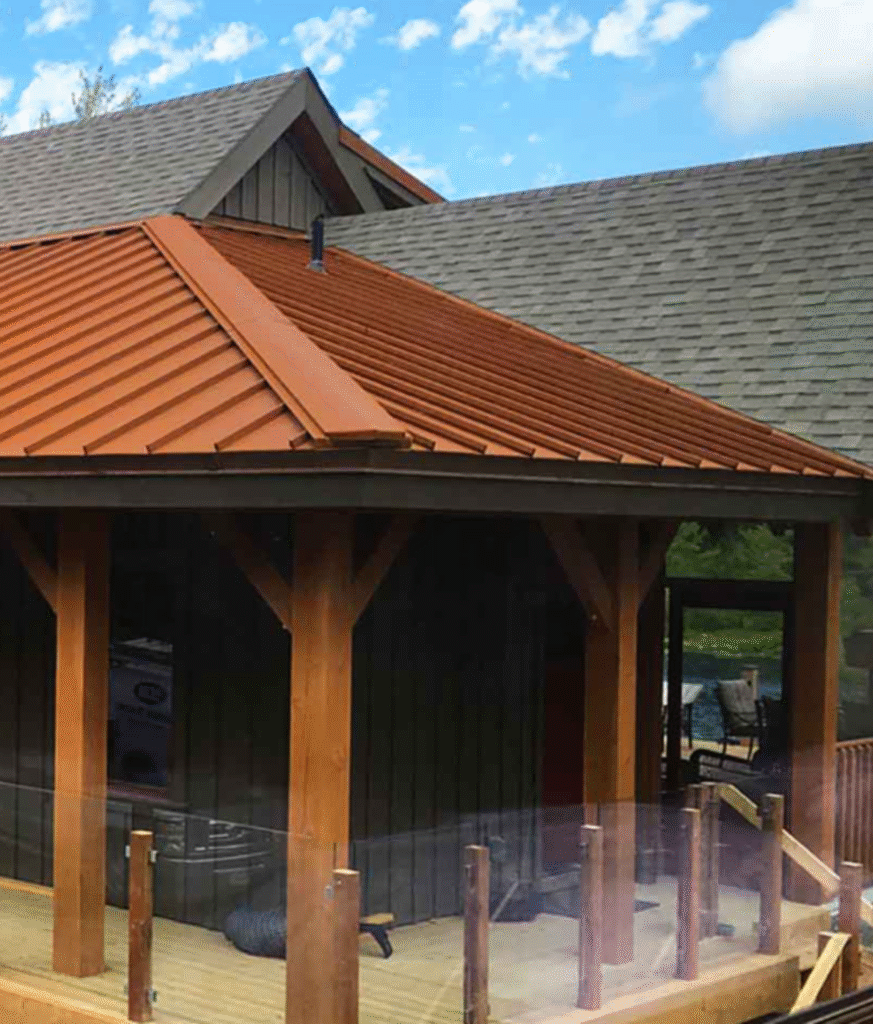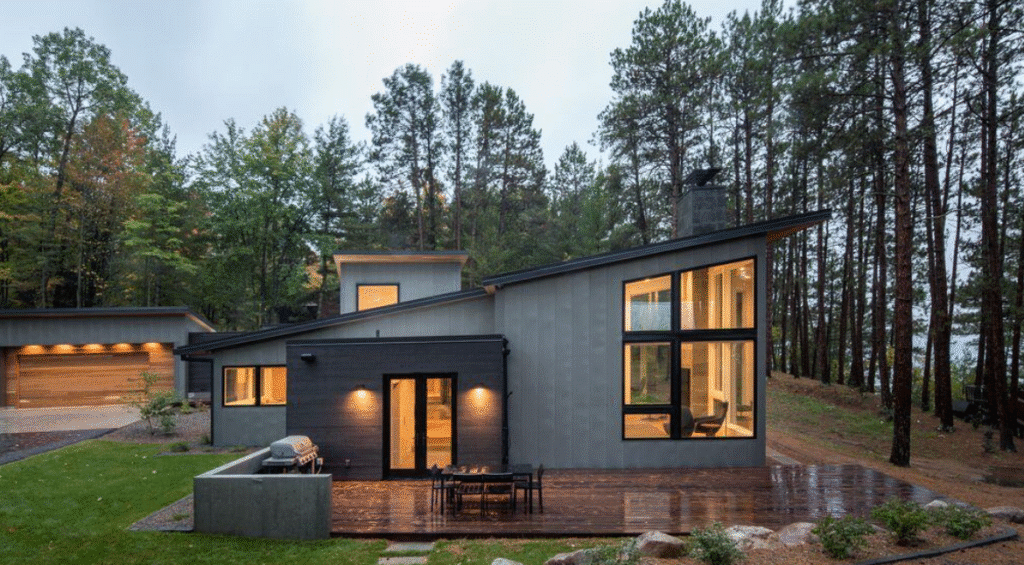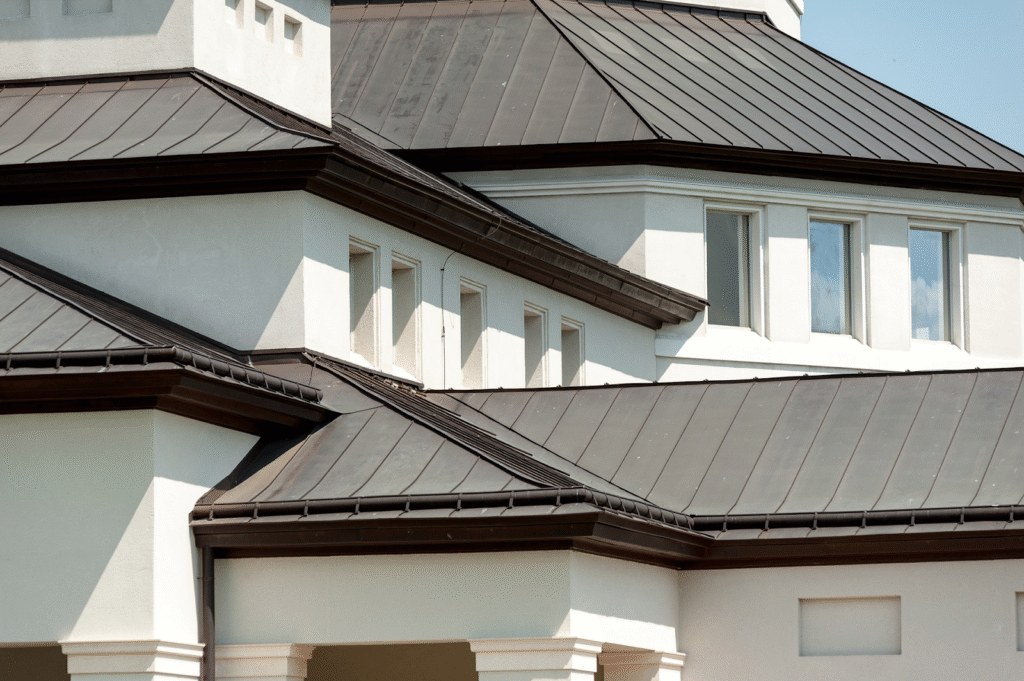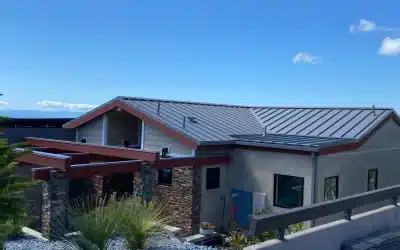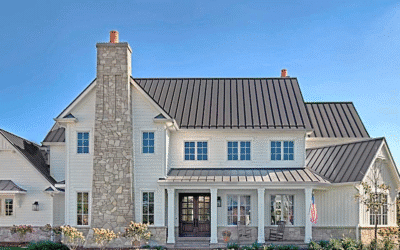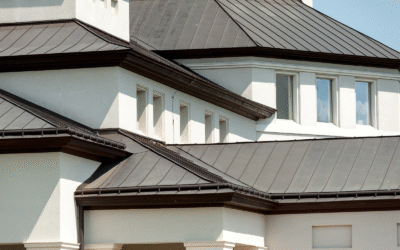Many property owners find it hard to separate aluminum roofing’s pros and cons from other metal roofing materials. The climate plays one of the most important roles, especially when you have aluminum roofing installations in Canada where weather resistance matters. Aluminum roof systems offer lightweight construction and resist corrosion, which makes them perfect for coastal areas. Calgary’s aluminum roofing installations face unique challenges due to extreme temperature swings and heavy snowfall.
Table Of Contents
- Aluminum vs Metal – What’s the Difference?
- Performance and Longevity Comparison
- Cost, Installation, and Regional Suitability
- Conclusion
- FAQs
In this piece, we’ll get into how these materials stack up against each other in performance, longevity, cost, and regional suitability. This comparison will help you make an informed choice that fits your specific needs.
Aluminum vs Metal – What’s the Difference?
Property owners often ask us, “Isn’t aluminum just another type of metal roofing?” This question expresses a misconception we hear quite often.
Aluminum is a metal, but the construction industry calls steel products “metal roofing.” This difference is vital when you’re picking materials for your property.
Aluminum’s composition and physical properties make it unique among roofing options. Steel dominates the market, but aluminum has its own special features. The biggest difference is in thickness – aluminum roofing is much thinner than steel. This makes it lighter and easier to install.
In spite of that, the thin nature of aluminum creates some challenges. It doesn’t handle harsh weather as well as steel roofing does. Heavy hail or snow loads might dent or damage aluminum more easily. This is a big deal if your property is in an area with extreme weather.
The insulation performance is different between these materials too. Steel and other metal roofing options give you better R-value than aluminum. R-value shows how well a material blocks heat transfer. Steel’s higher R-value helps regulate your building’s temperature better, which could lower your energy bills.
Aluminum shines when it comes to fighting corrosion, especially near the coast where salt speeds up rust on steel. Properties near oceans or in humid areas benefit from aluminum’s resistance to rust.
Yes, it is true that each material has its own strengths and weaknesses. Your specific needs, local weather, and budget will determine the best choice. The next section will make these differences even clearer as we look at performance and longevity.
Performance and Longevity Comparison
Steel and aluminum roofing materials show clear differences in how long they last under different conditions. Property owners need to understand these differences before they invest in a roof that could last for decades.
Aluminum shines in specific environments. It resists corrosion better than other materials, which makes it perfect for coastal properties where salt would quickly damage steel roofs. The lightweight nature of aluminum puts less stress on your building’s structure and helps other components last longer.
Steel roofs handle harsh weather conditions better. Our years of installation experience in different climates show that steel is nowhere near as vulnerable to damage from hail and heavy snow compared to aluminum options. This strength means a longer life in areas with extreme weather.
Steel roofing’s thermal performance gives it an edge. Its higher R-value keeps indoor temperatures stable and cuts down on energy costs over time. This advantage matters a lot to property owners in places like Calgary, where temperatures change drastically with the seasons.
These materials need different levels of care. Aluminum needs less maintenance since it won’t rust or corrode like steel can if the protective coating gets damaged. However, aluminum’s softer nature means you should check it more often for physical damage.
Warranty terms reflect how these materials perform differently. Quality metal roofing comes with extensive warranties, but the terms change based on your material choice and installation quality. Your best choice depends on your local environment, performance needs, and budget.
Aluminum works best for properties in areas with mild weather but high humidity or coastal exposure. Steel roofing systems are a better long-term investment for inland locations that face severe storms or heavy snowfall.
Cost, Installation, and Regional Suitability
Property owners often choose their roofing material based on price when they weigh aluminum roofing benefits against other metal options. Our team at Western Slope Metals has seen how costs change based on where you live and what you need.
Standard metal roofing costs less than aluminum upfront, with aluminum being 15-20% more expensive in most markets. The original investment needs a closer look though. Aluminum’s longer maintenance-free lifespan makes more sense in coastal areas where rust protection is vital. This ended up giving better value over time.
These materials are different when it comes to installation too. Aluminum’s light weight speeds up installation and cuts down labor costs compared to steel panels. This matters even more for residential metal roofing projects because faster installation means lower overall costs.Your location should play a big role in choosing materials, beyond just the price:
- Coastal environments – Aluminum works best for waterfront properties because it resists salt naturally, while standard metal roofing needs special anti-corrosion coatings that get pricey
- Mountain regions – Steel panels handle snow loads better, making them ideal for places like Colorado with heavy winter snow
- Urban settings – Both materials resist fire well, but aluminum’s lighter weight helps when you modernize existing buildings
Weather affects more than just rainfall patterns. To name just one example, our custom metal fabrication work in extreme temperature zones shows that aluminum expands and contracts more than steel. This means installers need extra care to prevent loosening as time passes.
Local material availability affects both cost and choices. Building codes in your area might favor certain materials based on how well they’ve performed there before.
Conclusion
Your property needs and location will determine the best choice between aluminum and other metal roofing options. Our years of experience show how both materials excel in different situations. Aluminum provides unmatched benefits in coastal environments where corrosion resistance matters most and offers a lightweight option that puts less stress on buildings.
Steel roofing performs better against physical impacts from hail, heavy snow, and extreme weather conditions. This makes steel especially valuable for properties in Calgary and other areas that face harsh seasonal challenges. On top of that, steel’s higher R-value delivers better insulation performance and could lower your long-term energy costs, despite weighing more.
The cost factor plays a vital role in this decision. Aluminum’s 15-20% premium might seem high at first, but this investment often pays off through reduced maintenance in the right environments. Steel’s lower upfront cost and exceptional durability create great value for inland properties away from coastal areas.
Your region should guide the final choice. Waterfront properties exposed to constant salt benefit more from aluminum’s advantages. Mountain areas with heavy snowfall need steel’s superior load-bearing strength. City renovations might favor aluminum’s lighter weight, though both materials give excellent fire protection for urban use.
Talk to experienced roofing professionals who know your area’s climate challenges before making your final choice. The right material should balance environmental factors, performance needs, and budget to protect your property for decades. Remember – there’s no universal best roofing material. The perfect choice matches your specific situation and local conditions.
FAQs
What are the main differences between aluminum and steel roofing?
Aluminum roofing is lighter, thinner, and more corrosion-resistant, making it ideal for coastal areas. Steel roofing is more durable, offers better insulation, and performs better in extreme weather conditions like hailstorms and heavy snow loads.
Is aluminum roofing more expensive than other metal roofing options?
Yes, aluminum roofing typically costs 15-20% more than standard metal roofing options. However, in coastal regions, its longer maintenance-free lifespan can justify the higher initial investment.
How does the performance of aluminum roofing compare to steel in different climates?
Aluminum excels in coastal and humid environments due to its corrosion resistance. Steel performs better in areas with extreme weather, such as regions with heavy snowfall or frequent hailstorms, due to its superior durability and impact resistance.
Which roofing material is easier to install?
Aluminum roofing is generally easier and faster to install due to its lightweight nature, which can result in lower labor costs. Steel roofing, being heavier, may require more time and effort to install.
How do aluminum and steel roofing compare in terms of energy efficiency?
Steel roofing typically provides better insulation with a higher R-value, which can lead to more consistent internal temperatures and potentially lower energy costs. Aluminum, while not as insulating, can still contribute to energy efficiency through its reflective properties.
How Western Slope Metals Helps You Choose Between Aluminum and Other Metal Roofing & Siding
→ Understand the benefits and drawbacks of aluminum vs other metal options
→ Get expert advice based on climate, aesthetics, and durability needs
→ Select roofing and siding that match your budget and long-term goals
⭐⭐⭐⭐⭐ Trusted by Homeowners Across the Region
Compare Aluminum and Metal Siding & Roofing with Confidence →



